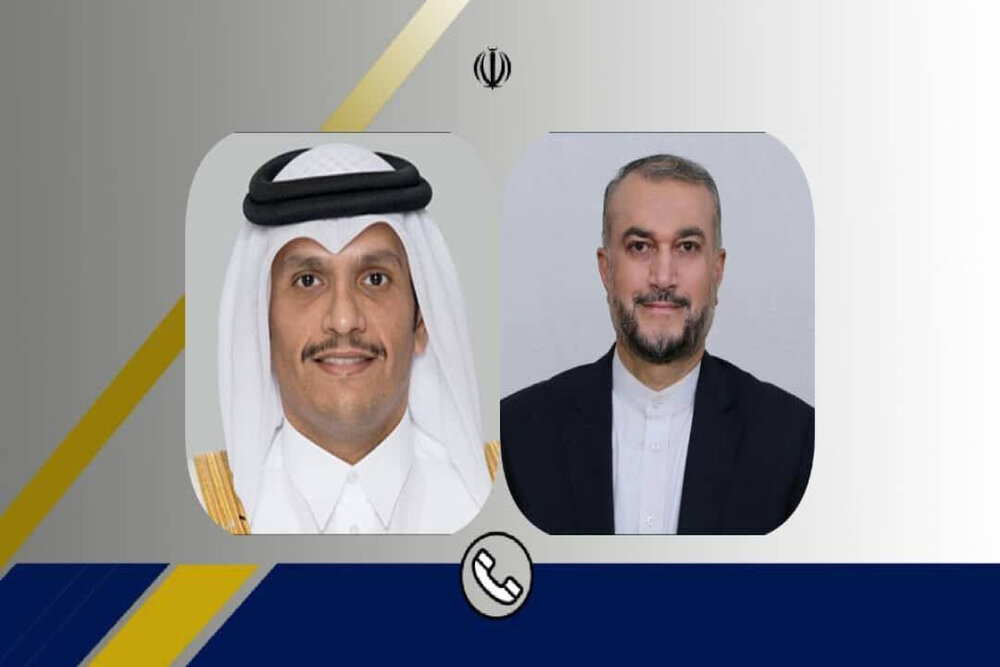Iranian, Qatari foreign ministers exchange views on JCPOA

TEHRAN - The phone conversation on Saturday night between the foreign ministers of Qatar and Iran focused on ties between the two countries as well as the Vienna negotiations intended to resurrect the 2015 Iran nuclear deal, officially known as the Joint Comprehensive Plan of Action (JCPOA).
Qatari Foreign Minister Sheikh Mohammed bin Abdulrahman Al-Thani and his Iranian counterpart Hossein Amir Abdollahian, according to Qatar News Agency (QNA), addressed bilateral relations as well as the most recent developments in the talks to revive the JCPOA.
The top Qatari diplomat expressed optimism that the Islamic Republic of Iran and the United States would come to an agreement to restore the nuclear accord, which should be a fair arrangement to make all sides feel more at ease.
The arrangement will support security and stability in West Asia, the Arab official added.
Analysts say approval of the conditions for a solid and dependable deal by Washington will open the way for securing a final agreement in the shortest amount of time after more than a year of negotiations in Vienna, Austria, to lift anti-Iran sanctions.
Iran maintains that a successful agreement must safeguard economic gain for the Iranian people, even though economic issues are being utilized as a means of pressure on the Iranians.
However, the administration of U.S. President Joe Biden is unable to decide to return to the nuclear agreement due to domestic issues and pressure from the Zionist regime, so Washington resorts to setting fictitious deadlines and placing the responsibility for the protracted negotiations on Iran.
On August 16, the Islamic Republic responded to a text drafted by the European Union, and on August 24, the U.S. responded. After Tehran remarked on Washington's response, the White House still dithers and refuses to respond to the second response.
Josep Borrell, the High Representative of the European Union for Foreign Affairs and Security Policy, stated last week that the U.S. political landscape and some views were to blame for the talks' impasse, and that the negotiating parties' positions had shifted since the end of the summer.
Leave a Comment